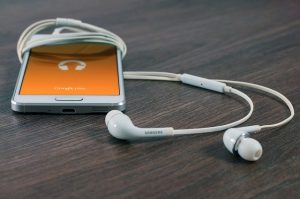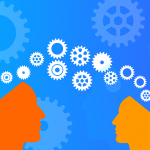How Does This Sound?
 Listening to music can make you a healthier nurse. It’s true! It’s not only enjoyable but it can also regulate our physiological state, relieve pain and calm our emotions. Music can holistically make you a healthier nurse.
Listening to music can make you a healthier nurse. It’s true! It’s not only enjoyable but it can also regulate our physiological state, relieve pain and calm our emotions. Music can holistically make you a healthier nurse.
Music is used as a non-pharmacological nursing intervention in many areas of health care. In her article, Music as a Nursing Intervention, Not as Crazy as it Sounds, Margo Phaneuf, PhD, RN, discusses the influences music has on healing. It all starts with a sound which then travels from our ears to our neurological system. Music will then make its first stop at the limbic system. The limbic system controls our “stress response” and emotions. Listening to enjoyable music can relax us and improve emotional wellbeing. In turn, this can help to regulate our other body systems causing homeostasis.
Many health care organizations are implementing music as a nursing intervention to relieve anxiety or agitation, relieve pain, regulate the heart rate, plus so much more. The nonprofit organization Music & Memory teaches health care professionals and caregivers who work with those with cognitive and physical disabilities to use the power of music to “awaken” the brain. This initiative teaches caregivers to play individualized music for those with Alzheimer’s disease and other dementias to enhance memory and to regulate the physiologic system. It appears that music can make people become “alive inside,” which was the intent of Dan Cohan, the founder of Music & Memory. Cohan proves the dramatic benefits of music on the mind in the documentary Alive Inside.
It only makes sense that if music is to have such a healing benefit for our patients, then it must also heal the nurse. Rose Kennedy speaks of the benefits of nurses using music to destress in her article, Upbeat: How Music Helps Nurses Heal from Trauma and Stress. Listening to music is an easy self-care strategy and, in most cases, it can be implemented while on the job. Kennedy suggests listening to quiet music at the nurses’ station or on the med cart, but music is easily accessible. Singing a song, tapping your feet and humming are all forms of music. A self-regulated calm and happy nurse is a resilient nurse, so finding ways to incorporate music into the workday benefits everyone.
If you don’t already listen to music on a regular basis, now’s the time to change your tune. Rock on, Healthy Nurses!
Tracey Jaworski-Lucas, BSN, RN, and the Healthy Nurse Healthy New Jersey Team
References:
Alive Inside. (n.d.). Retrieved from Alive Inside: https://www.aliveinside.org/about
Kennedy, R. (2019, 7 2). Upbeat: How Music Helps Nurses Heal from Trauma and Stress. Retrieved 2020, from AJC: https://www.ajc.com/lifestyles/health/upbeat-how-music-helps-nurses-heal-from-trauma-and-stress/ynL8aEfINE75Aruws5F4aO/
Music & Memory. (n.d.). Retrieved from Music & Memory: https://musicandmemory.org/about/mission-and-vision/
Phaneuf, M. (n.d.). Resources in nursing. Retrieved 2020, from Infiressources: http://www.infiressources.ca/fer/Depotdocument_anglais/Music_as_a_nursing_intervention-not_as_crazy_as_it_sounds.pdf




